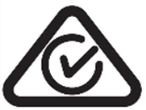Overview
The laws covering the sale of electrical equipment in Victoria were changed on 1 April 2019. These laws and regulations are called the Electrical Equipment Safety System (EESS).
Introduced to improve consumer safety for household electrical equipment sold in Victoria, the EESS aims to harmonise various state legislation across Australia, and for the first time, provide the public with a national database of responsible suppliers and electrical equipment registrations. The database will ensure that this electrical equipment is easily traced to the supplier and allow users to verify its legal supply in Australia and New Zealand.
New laws and regulations
The EESS has changed the requirements for businesses that import, manufacture or sell specific electrical equipment. All applicable electrical equipment sold in Victoria must be linked to a registered responsible supplier prior to sale.
Each item will be categorised in one of three levels:
- Level 1 – Low risk
- Level 2 – Medium risk
- Level 3 – High risk.
Equipment classified as Level 2 or Level 3 (as listed in AS/NZS 4417.2.) must also be registered on the national database. Technical safety requirements under the EESS have not changed, however, better evidence of conformity is required for some items.
A single Regulatory Compliance Mark (RCM) replaces the requirement to mark Approval numbers – see below.
This system is a self-funding, ‘user-pays’ system where registration fees fund improved compliance, surveillance and post-market enforcement activities.
Energy Safe Victoria reviewed the Electricity Safety (Equipment) Regulations 2009 (which expired 21 April 2019) and developed a revised set of regulations to facilitate the implementation of the EESS legislation. These regulations came into force on 1 April 2019.
Features of EESS
- Certification database
- National Supplier registration
- Single Regulatory Compliance Mark (RCM)
- Risk based classification of equipment
- Funding for market surveillance
- Consumers can check and verify a product’s registration and certification.
Scope of EESS
Electrical equipment covered by EESS is:
- low voltage electrical equipment (50V AC to 1000V AC or between 120V DC to 1500V DC)
- designed, or marketed as suitable for household, personal or similar use.
Requirements of risk levels
Level 3 – High Risk
- Supplier must be registered – $216.89 annual fee
- Equipment must be certified
- Equipment must be registered – $81.28 annual fee.
Level 2 – Medium Risk
- Supplier must be registered – $216.89 annual fee
- Equipment must be registered – $81.28 annual fee
- Test report to be made available to regulator on request.
Level 1 – Low Risk
- All electrical equipment that does not fall under Level 2 or 3
- Supplier must be registered – $216.89 annual fee
- Documentary evidence of compliance with relevant standard to be provided to regulator on request. Further information is available at www.eess.gov.au
Responsibilities of manufacturers and sellers
Manufacturers and importers
Importers and onshore manufacturers of applicable electrical equipment must register as a responsible supplier.
- All applicable electrical equipment sold in Victoria must be linked to a registered responsible supplier prior to sale. If the equipment is classified as Level 2 or Level 3, it must also be registered on the national database.
- Level 3 electrical equipment must have a Certificate of Conformity before it can be registered on the national database.
- Suppliers of Level 2 electrical equipment must maintain a compliance folder for their level 2 products. This folder must be made available to Regulators within 14 days of initial request.
- Any state electrical regulator or Registered Electrical Contractor (REC)’s accredited third party certifier may issue a Certificate of Conformity.
- It is the responsibility of the supplier or importer to maintain current registration for any in-scope electrical equipment supplied.
Sellers (other than manufacturers and importers)
Retailers, wholesalers, internet-based suppliers, auction and market sellers who did not import or manufacture the products they are supplying are required to ensure those products are linked to a registered responsible supplier before purchasing the equipment from a manufacturer or supplier.
For any new Level 2 or Level 3 equipment purchased by the seller, the seller must ensure the equipment is registered on the EESS database when the purchase is made, and that the products are marked with the Regulatory Compliance Mark (RCM).
Any level 1 equipment purchased by the seller may only be purchased from a registered responsible supplier and must be marked with the RCM.
More information
For information about in-scope electrical equipment, responsible suppliers and equipment registration, go to the EESS website
Date: 01/02/2026 13:11
Controlled document
The currency and accuracy of this document cannot be guaranteed once printed or saved to a storage device. If in doubt, please check the ESV website for the current version.
Reviewed
